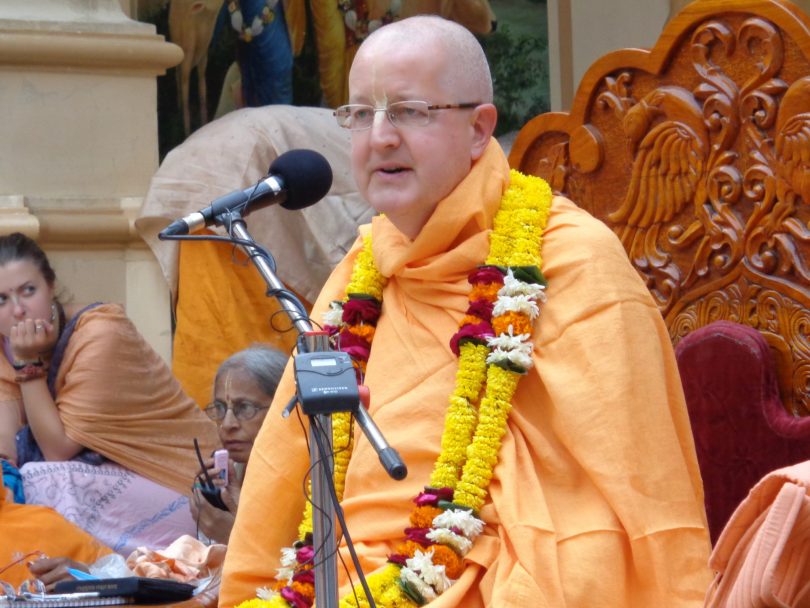Question: How should we understand that ultimately we are not the doer of our activity? How to keep this understanding always and work, because many times when we work we often get carried away thinking that actually I’m the doer (and it appears to be so)?
Answer by Romapada Swami: With some introspection, guided by spiritual intelligence from Bhagavad Gita, we can recognize that we are not the ultimate doer. We discussed this in a previous digest (Digest78):
“In Bhagavad Gita 18.14, Krishna explains that there are five factors of action, only one of which is our self, the others being the senses and instruments, the field of action, the different endeavors and ultimately the Supersoul. As said above, everything required for performing an activity, including our own intelligence and strength comes from Krishna. Our independent will constitutes one of the factors, but we are miniscule and dependent on the Lord for every movement and can act only under His sanction. Thus, with a little introspection, we can understand that we are not the cause or doer. We may be an immediate or intermediate cause, but the ultimate doer is Krishna.
See also Bhagavad Gita 5.14 (“The embodied spirit, master of the city of his body, does not create activities, nor does he induce people to act, nor does he create the fruits of action. All this is enacted by the modes of material nature.”) Material nature is creating the fruits of all material activities, not the soul. We have the capacity to perform work, we make various endeavors, material nature creates results…and material nature works under Krishna’s direction (Bhagavad Gita 9.10).”
To maintain this consciousness while working in the field of our activities, however, takes devotional practice — by increasingly recognizing our insignificance and cultivating a mood of dependence on Krishna in doing our activities. When we practice doing every activity in the mood of a servant, simply as an order-carrier of Guru and Krishna – from simple things as chanting or cleaning to executing occupational duties, discussing philosophy or interacting with colleagues – this internal cultivation strengthens the realization of our totally dependent position.
While doing so it will become increasingly evident that the result derived from work done in such a mood of surrender and dependence is perceptibly much different from the result obtained by acting in the mood of doer, in terms of what effect it has on our own consciousness and also upon the environment and others around us. When acting according to scriptural direction, under the guidance of the Lord’s representatives, and for the purpose of pleasing the Lord – you will begin to see that such actions are uplifting, liberating and beneficial for all, while you are simply being an instrument, personal qualifications/disqualifications notwithstanding. In contrast, when acting under the impression that ‘I’m the doer’, under the influence of false-ego, what is really happening is that we are being completely conducted by the modes of nature – be it goodness, passion or ignorance (Bhagavad Gita 3.27); consequently the results are also completely controlled by the modes, not in our control. This personal realization reinforces our recognition of the fact that we are not the doer but simply an instrument, fully under the control of either the modes of nature or the internal potency of devotion, depending upon our desire or freewill disposition.
In summary, by acting in a mood of service under the guidance of realized devotees, we can become free of the false sense of doer-ship. By adopting the mood of humble service, Krishna provides us with ample yet gradual realization of this important spiritual reality.







